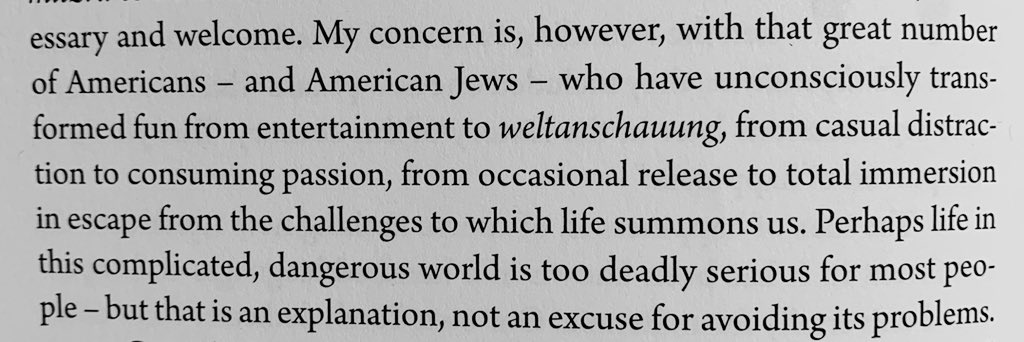
Rabbi Lamm 60 years ago.
Before Netflix and fantasy leagues [and even before the birth of the New York Mets!] and most of what surrounds us today.
Or how about this, written by a different Jewish thinker and author:
The man of our time is losing the power of celebration. Instead of celebrating, he seeks to be amused or entertained. Celebration is an active state, an act of expressing reverence or appreciation. To be entertained is a passive state—it is to receive pleasure afforded by an amusing act or a spectacle. Entertainment is a diversion, a distraction of the attention of the mind from the preoccupations of daily living. Celebration is a confrontation, giving attention to the transcendent meaning of one’s actions.
"When did he write that? This morning? It reads like the perfect commentary on our 24/7-non-stop-info-and-entertainment-cavalcade of existence, bouncing from one screen and gadget to the next, sucking up amusement from fifteen different sources every second. But the quote is based on lectures given in 1963.
Of-course, he is also highlighting a tendency in human nature that is timeless; that is, to bury oneself in entertainment and amusement and to forget the meaning at the heart of everything, or indeed to forget even to ask whether there is any meaning. It was possible to live that way three thousand years ago, although there were probably more frequent reminders of the limits of one’s powers and one’s lifespan. Today, it’s merely a lot easier to keep the volume up and drown out any still small voice that might be asking one to celebrate instead of just to continue blithely consuming."
He goes on:
Celebration is an act of expressing respect or reverence for that which one needs or honors. In modern usage, the term suggests demonstrations, often public demonstrations, of joy and festivity, such as singing, shouting, speech making, feasting and the like. Yet what I mean is not outward ceremony and public demonstration, but rather inward appreciation, lending spiritual form to everyday acts. Its essence is to call attention to the sublime or solemn aspects of living, to rise above the confines of consumption.
To celebrate is to share in a greater joy, to participate in an eternal drama.